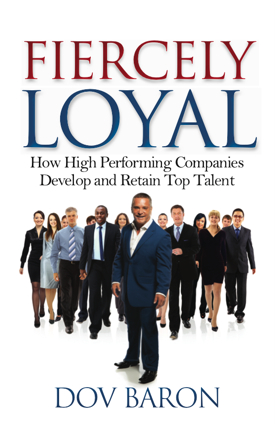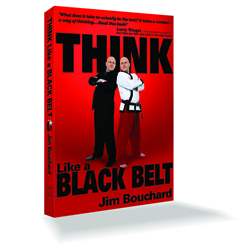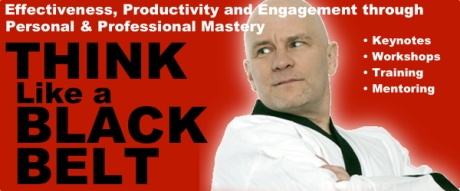 Much of the crises in leadership today is the result of a widening rift between managerial or organizational styles and the true human expression of leadership. Dov Baron’s latest book, Fiercely Loyal, is closing that gap.
Much of the crises in leadership today is the result of a widening rift between managerial or organizational styles and the true human expression of leadership. Dov Baron’s latest book, Fiercely Loyal, is closing that gap.
Striking a masterful balance between engaging stories and irrefutable research, Dov creates a template you can use immediately to become an authentic leader and attract followers who are Fiercely Loyal.
Knowing Dov, it was no surprise to me that he places a tremendous emphasis on the same characteristics of effective leadership that I do. Two of the most important are compassion and genuine courage. I knew we were singing in the same choir when Dov dispelled the commonly held belief that being an open and vulnerable leader is a mark of strength, not weakness…
“Despite what you’ve been taught, vulnerability is the very opposite of weakness; in truth, it’s all about courage. Make no mistake, for someone to be truly courageous, vulnerability must come first…
“On the other hand, real courage requires vulnerability. Real courage requires us to step into something where we cannot predict the outcome; something that, in some way, seems terrifying, not because we could die, although that may be part of how we feel, but because we feel we might receive the most painful of punishments—that of being rejected, disowned, and ultimately isolated.
“That’s why I tell you that real courage cannot exist without the risk of vulnerability!”
Throughout the book Dov validates the leadership lessons I learned as a Sensei…
I don’t think I’ve ever asked Dov if he studied martial arts, but he certainly seems like a black belt to me when he talks about two other key characteristics of a genuine leader, purpose and Mastery:
“A way to internally define mastery is our urge to get better at something, and then when we get better at it, to see if we can keep getting better. Even though it may make no logical sense, people will play musical instruments for hours each night and on the weekend just to get better. Most of these folks are not planning on becoming professionals, or even hoping to make any money from their skill, yet they toil toward mastery.
“Looking purely from the position of economics, an economist would have to ask, ‘Why are they doing this?’ It’s awe inspiringly clear. Working through the challenge of mastery gives us a deeper sense of contribution, and when we combine the desire for mastery with making a contribution, we ignite a deep tribal desire. Once again, we are part of something bigger than ourselves; we belong and we have value. Simply put, we do it because it brings about the sense of personal satis- faction that happens when we overcome a challenge, because it is fun, and most important of all, because it gives our lives meaning—and meaning, as you will see, is vital to creating a culture where your top talent is Fiercely Loyal.”
Ultimately, that’s what leadership is all about. The primary roles of a leader are to inspire the best efforts of others, direct their collective efforts toward a larger, collective success and most of all- to be a living example of personal and professional excellence.
I’ve been instigating some trouble at my events by telling people I can’t stand “Undercover Boss.” It’s an entertaining show, but it actually pisses me off that so many executives have absolutely no connection to people on the front lines.
I may include this excerpt from Fiercely Loyal in my slide deck from now on:
“Business is now, more than ever, a process of relationship. However, as I’ve said many times before, those relationships must be transparent, authentic, and genuinely caring. This also means face-to-face business, not just with your customers, but with everyone in and on your team.”
Leadership is a human expression- to my mind leadership is one of the highest expressions of human interaction.
As a leader, you can only honor that expression through compassion and caring and by being fully engaged, on the most human level, with everyone you serve. That’s the point Dov drives home in his powerful book.
You need a copy of Fiercely Loyal in your library…
…today.
Learn more about Dov Baron and order Fiercely Loyal here…

February 19, 2015
Categories: Books & More!, Business Life, Current Events & Issues, Inspiration & Motivation, Leadership, Personal Growth, Philosophy . Tags: achievement, author, book, books, business, compassion, conference speaker, courage, Dov Baron, empowerment, lead, Leadership . Author: jimbouchard . Comments: Leave a comment
 Join Jim Bouchard on Wednesday, July 1st at Conundrum Wine Bistro in Freeport, Maine., for a special signing of his new book, THE SENSEI LEADER to benefit The Friends of Long Creek Youth Development Center!
Join Jim Bouchard on Wednesday, July 1st at Conundrum Wine Bistro in Freeport, Maine., for a special signing of his new book, THE SENSEI LEADER to benefit The Friends of Long Creek Youth Development Center!





















